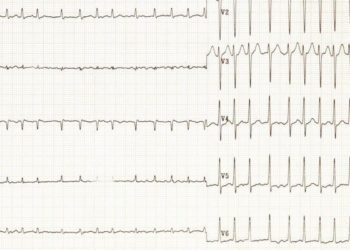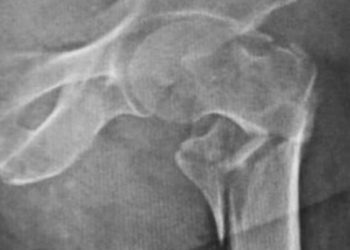Midodrine prevents recurrence of vasovagal syncope
1. Midodrine was shown to reduce the recurrence of vasovagal syncope in younger, healthy patients.
2. No significant interaction was shown between midodrine treatment and the relative risk of syncope based on sex or baseline heart rate.
Evidence Rating Level: 1 (Excellent)
Study Rundown: Vasovagal syncope causes poor quality of life, and the condition is difficult to treat due to the lack of high-quality evidence of effectiveness with current medications. Midodrine, an α1-adrenergic receptor agonist, has the potential of preventing vasovagal syncope recurrence with its direct vasoconstrictor and venoconstrictor activity. With the limited evidence available for the efficacy of midodrine, this study assessed whether midodrine could prevent vasovagal syncope recurrence. The study determined midodrine was able to reduce the recurrence of syncopal episodes in healthy- young patients with a high syncope burden as compared to the placebo. Furthermore, there was no significant interaction between the treatment and independent variables such as sex, number of syncopal episodes in the previous year, or baseline heart rate. The randomized control trial was limited by the small study size and a high proportion of patients enrolled from one center. Nonetheless, the study’s results are significant, and its findings highlight a treatment to reduce vasovagal syncope recurrence in patients with a high syncope burden.
Click to read the study in Annals of Internal Medicine
Relevant Reading: The efficacy of midodrine hydrochloride in the treatment of children with vasovagal syncope
In-Depth [randomized controlled trial]: This randomized control trial study enrolled 133 participants across 25 university centers in Canada, the United States, and the United Kingdom. Participants included in the study were at least 18 years of age or older and had fainted at least twice in the year prior to enrollment. Participants with hypertrophic cardiomyopathy, permanent pacemaker, or a seizure disorder were excluded from this study. The participants were randomized in a 1:1 ratio to receive either midodrine or placebo, respectively. The primary outcome was the proportion of participants with at least one syncope episode during the follow-up period. The follow-up period was 12 months, and the median number of syncopal episodes in the prior year was six episodes. Participants on midodrine treatment (n, 28 patients; 42%) had fewer syncopal episodes compared to the participants in the placebo group (n, 41 patients; 61%) (relative risk [RR], 0.69; 95% confidence interval [CI], 0.49 to 0.97; P = 0.035). The absolute risk reduction was 19 percentage points (95% CI, 2 to 36 percentage points). Additionally, the number needed to treat to prevent one patient from having a vasovagal episode was 5.3 participants (95% CI, 2.8 to 47.6). Furthermore, the time to the first episode was longer in the treatment group compared to the control group (hazard ratio [HR], 0.59; 95% CI, 0.37 to 0.96; P = 0.031). Finally, subgroup analysis determined no significant interaction between the treatment with the relative risk of syncope based on sex or baseline heart rate. For example, the relative risk for an episode in participants with a heart rate greater than 70 beats per minute between both groups was 0.88 (95% CI, 0.51 to 1.52; P = 0.118). Taken together, midodrine was effective in significantly reducing the recurrence of vasovagal syncope episodes in young, healthy patients.
Image: PD
©2021 2 Minute Medicine, Inc. All rights reserved. No works may be reproduced without expressed written consent from 2 Minute Medicine, Inc. Inquire about licensing here. No article should be construed as medical advice and is not intended as such by the authors or by 2 Minute Medicine, Inc.




![The ABCD2 score: Risk of stroke after Transient Ischemic Attack (TIA) [Classics Series]](https://www.2minutemedicine.com/wp-content/uploads/2013/05/web-cover-classics-with-logo-medicine-BW-small-jpg-350x250.jpg)


